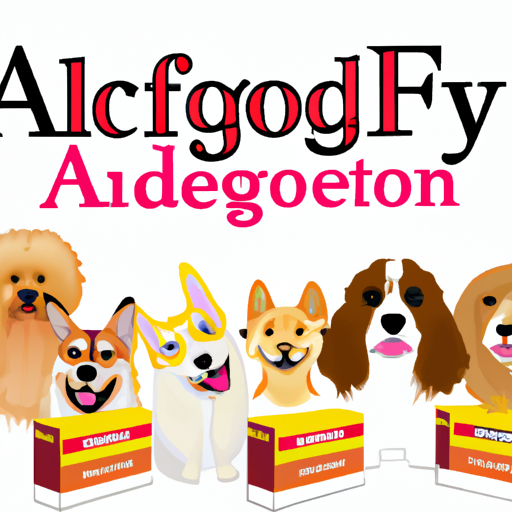Introduction
You’re a caregiver, a champion for your four-legged friends. You’ve noticed your dog scratching a lot, his coat looking a bit dull, and his energy levels are down. It’s possible that your furry friend may be suffering from food allergies. But don’t worry, you’re not alone in this. Food allergies affect approximately 10% of all dogs. As a dedicated caregiver, you want to do everything you can to help your dog feel better, and finding the right food is a crucial step.
Understanding Dog Food Allergies
Food allergies in dogs can manifest in various ways, including skin irritations, gastrointestinal upset, ear infections, and even behavioral changes. Common food allergens for dogs include:
- Beef
- Dairy
- Chicken
- Wheat
- Corn
- Soy
- Eggs
Remember, every dog is unique, and what may cause an allergic reaction in one dog might not in another.
Choosing the Best Dog Food for Allergies
When it comes to choosing the best food for your dog with allergies, you’ll want to consider the following:
- Hypoallergenic Formulas: These are recipes that contain a limited number of ingredients and are often grain-free.
- Novel Protein Diets: These diets utilize a protein source your dog has never been exposed to, reducing the likelihood of an allergic reaction.
Here’s a comparison table of a few top-rated dog foods for allergies:
| Brand | Type | Key Features |
|---|---|---|
| Blue Buffalo Basics Limited Ingredient Diet | Dry | Grain-free, real turkey as the primary protein, pumpkin for digestible fiber |
| Natural Balance L.I.D. Limited Ingredient Diets Sweet Potato & Fish Formula | Dry | Grain-free, fish as the single animal protein source |
| Royal Canin Veterinary Diet Hydrolyzed Protein | Wet | Hydrolyzed protein, B vitamins and amino acids to support the skin’s natural barrier |
Making the Transition to a New Diet
Changing your dog’s diet should be a gradual process. Start by mixing a small amount of the new food with their old food. Gradually increase the amount of new food while decreasing the old food over the course of a week.
Ongoing Management and Care
Even with the right food, managing a dog with food allergies requires ongoing care. Regular vet visits, careful observation of symptoms, and maintaining a consistent diet will help keep your dog healthy and happy.
Frequently Asked Questions
Q: How can I tell if my dog has a food allergy?
A: Common signs of food allergies in dogs include itching, skin infections, and gastrointestinal upset. However, only a vet can conclusively diagnose a food allergy.
Q: How long does it take for a dog’s food allergy symptoms to improve?
A: It may take several weeks of being on the new diet before you see improvement in your dog’s symptoms.
Q: Can a dog develop allergies to a food they’ve been eating for years?
A: Yes, dogs can develop allergies to foods they’ve been eating for a long time. This is why it’s important to rotate proteins and not feed the same food endlessly.
As a caregiver, you are your dog’s best advocate. By understanding what food is best for dogs with allergies, you can provide your furry friend with a diet that enhances their quality of life.



